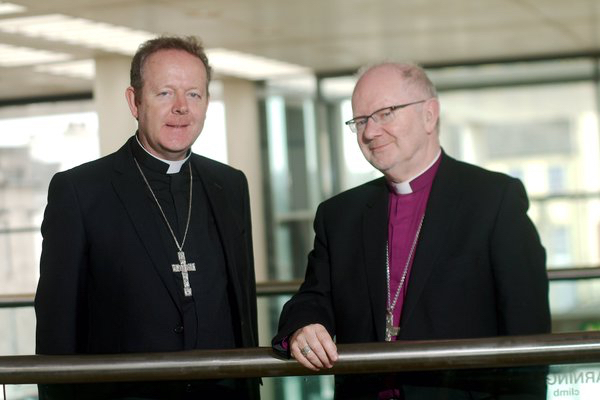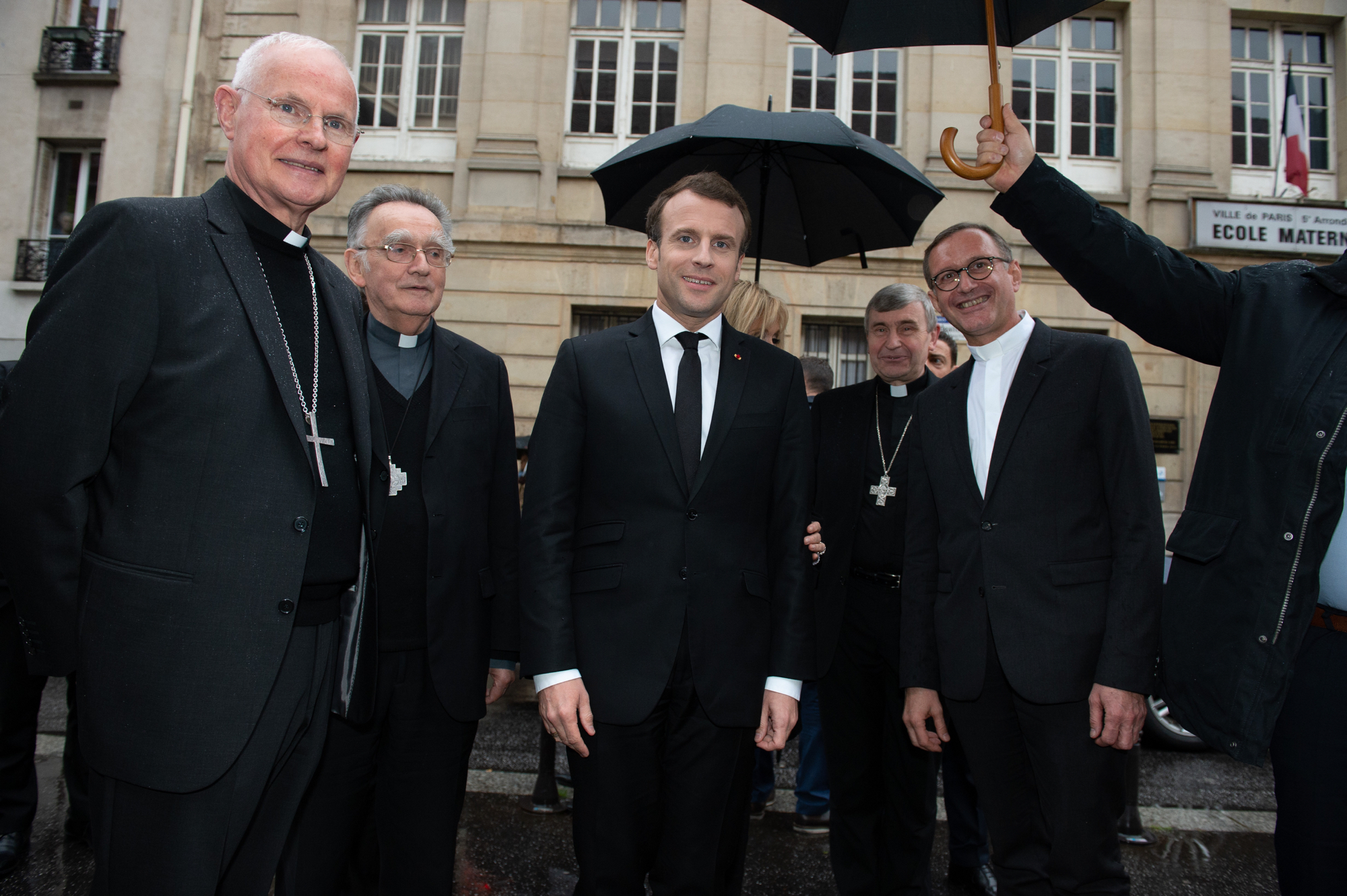President Emmanuel Macron has given France’s Catholic Church a ringing endorsement as an important element in the country’s religious, intellectual and social life and urged its members to take an active part in its secular political system.
Addressing the Catholic hierarchy and its guests, he sketched out a view of France’s official secularism, or laïcité, that was more balanced than the antagonistic Church-State policies under his immediate predecessor François Hollande and less political than the Christian identity approach practised before him by Nicolas Sarkozy.
The French bishops invited the president to a Church-run dialogue centre in Paris for the unprecedented session at a time they are lobbying against the legalisation of euthanasia, surrogate motherhood and other proposed changes in a reform of France’s bioethics law later this year.
To illustrate their concerns, the bishops opened the evening with testimonies by homeless and mentally handicapped people. Archbishop Georges Pontier, head of the bishops’ conference, reminded Mr Macron of the Church’s opposition to several bioethics reforms.
“We share a vague feeling that the link between the Church and the State has been damaged and it’s up to us to repair it,” Mr Macron told the audience of about 400.
“I would say that a Church that pretends not to be interested in temporal questions is not fulfilling its vocation, and a president of France who pretends to not be interested in the Church and Catholics is not doing his duty,” he said.
Macron, who was baptised a Catholic at age 12 at his own request, said Church-State relations had been marked by “misunderstandings and reciprocal mistrust” and that politicians “have profoundly misunderstood French Catholics” either as a conservative voting block or opponents of secular democracy.
While France is now a secular country, “secularisation cannot eliminate (its) long Christian tradition”, he said. France has long debated the issue of its Christian roots, he added, but roots can be dead while France’s “Christian lifeblood” would continue to nourish the nation.
On the Church’s concerns for migrants, Macron cited Pope Francis’s call for prudent support for migration to defend his government’s policy of tightening control on illegal immigrants while caring for refugees.
He denied that inviting religious leaders to the public debates on bioethics were a ploy to ease the introduction of pre-determined reforms, saying he valued the human insights the Church brought into the debate on the role of new technologies.
He saw this dialogue as an exchange of views between equal partners who, by discussing both their convictions and uncertainties, can help society advance. “This is where the nation has most often grown in stature with the wisdom of the Church,” he said.
The speech, sprinkled with citations from prominent French Catholics down the centuries, included praise for the contributions lay and religious Catholics make through their religious and social work.
Macron’s broad and positive view of Church-State relations prompted the expected howls from avowed secularists. Left-wing leader Jean-Luc Mélanchon called him “a junior curate in a full metaphysical frenzy” while the Grande Orient de France Masonic lodge called the speech “a grave violation of laïcité”.
Jean-Pierre Denis, editor-in-chief of the Catholic weekly La Vie, said Macron saw the State cooperating much more with the Church than his predecessors did, but “gave no hints (of his views) on the debates where Catholics have come to oppose him”.
PICTURE: French President Emmanuel Macron (3rdL) are welcomed by archbishop of Montpellier and president of the Doctrinal Commission (L) Mgr Pierre-Marie Carre, archbishop of Marseille and president of the Bishops' Conference of France (CEF) Georges Pontier (2ndL), bishop of Saint-Denis and CEF President of the Episcopal Commissions on Finance Mgr Pascal Delannoy (R) and secretary-general and spokesperson of the Conference of Bishops of France (CEF) Mgr Olivier Ribadeau Dumas ©PA



 Loading ...
Loading ...